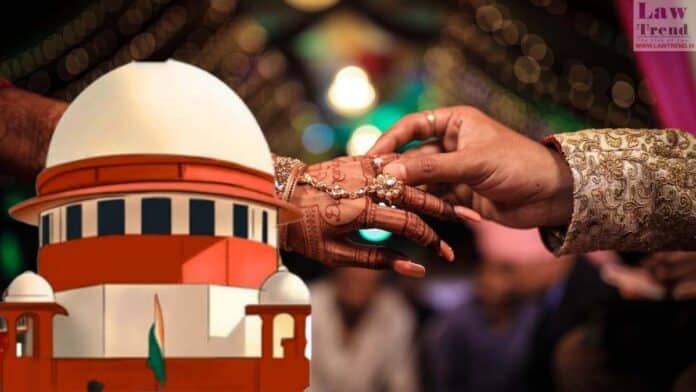The Centre raised questions in the Supreme Court on Monday over the locus standi of activist Teesta Setalwad’s NGO, “Citizens for Justice and Peace”, in challenging controversial state laws regulating religious conversions due to interfaith marriages.
Alleging that the NGO allows its name to be used “at the behest of some selected political interest”, the Union of India told the top court that it is guilty of collecting huge funds by exploiting the agonies of riot-affected people.
“I state and submit that the petitioner herein purports to act in public interest, in which it selectively takes up public causes for the objects and intents other than public interest.

“I respectfully submit that from a series of judicial proceedings, it is now established that the petitioner no.1 allows its name to be used through its two office-bearers at the behest of some selected political interest and also earns out of such activity,” an affidavit filed by Brahma Shankar, Joint Secretary in the Ministry of Home Affairs (MHA), said.
The Centre submitted that it has filed a preliminary affidavit only for the limited purpose of opposing the grant of any equitable or other relief under Article 32 of the Constitution at the behest of the petitioner.
“I respectfully submit that it is a settled position of law that the background and credentials of the petitioner would be the most relevant consideration for a constitutional court to decide whether to entrust such a petitioner with a writ of the constitutional court or to decide whether to invoke the jurisdiction vested in the highest constitutional court at the behest of the petitioner, whose credentials are in serious doubt.
“I respectfully submit that under the guise of serving public interest, the petitioner deliberately undertakes, and consciously and surreptitiously espouses, divisive politics in an attempt to divide the society on religious and communal lines,” the affidavit stated.
It alleged similar activities of the petitioner organisation in other states and said currently, this kind of activity is going on in Assam.
“I respectfully state and submit that the prayers made in the instant petition are made in other petitions also, which will be examined by this court, subject to hearing all necessary and affected parties. If the petitioner is bona fide contesting the present petition purely in public interest, it cannot have any objection if the same issue is gone into by this court in other proceedings.
“I state and submit that the present petition at the behest of the petitioner organisation may be dismissed only on the ground of locus. The present affidavit is bona fide and in the interest of justice,” it said.
The apex court had, on January 6, 2021, agreed to examine certain new and controversial laws of Uttar Pradesh and Uttarakhand regulating religious conversions due to interfaith marriages.
The Uttar Pradesh law relates to not only interfaith marriages but all religious conversions and lays down elaborate procedures for anyone who wishes to convert to another religion.
The Uttarakhand law entails a two-year jail term for those found guilty of religious conversion through “force or allurement”. The allurement can be in the form of cash, employment or material benefits.
The plea filed by the NGO has alleged that these legislations violate articles 21 and 25 of the Constitution as those empower the State to suppress an individual’s personal liberty and freedom to practise the religion of his choice.







